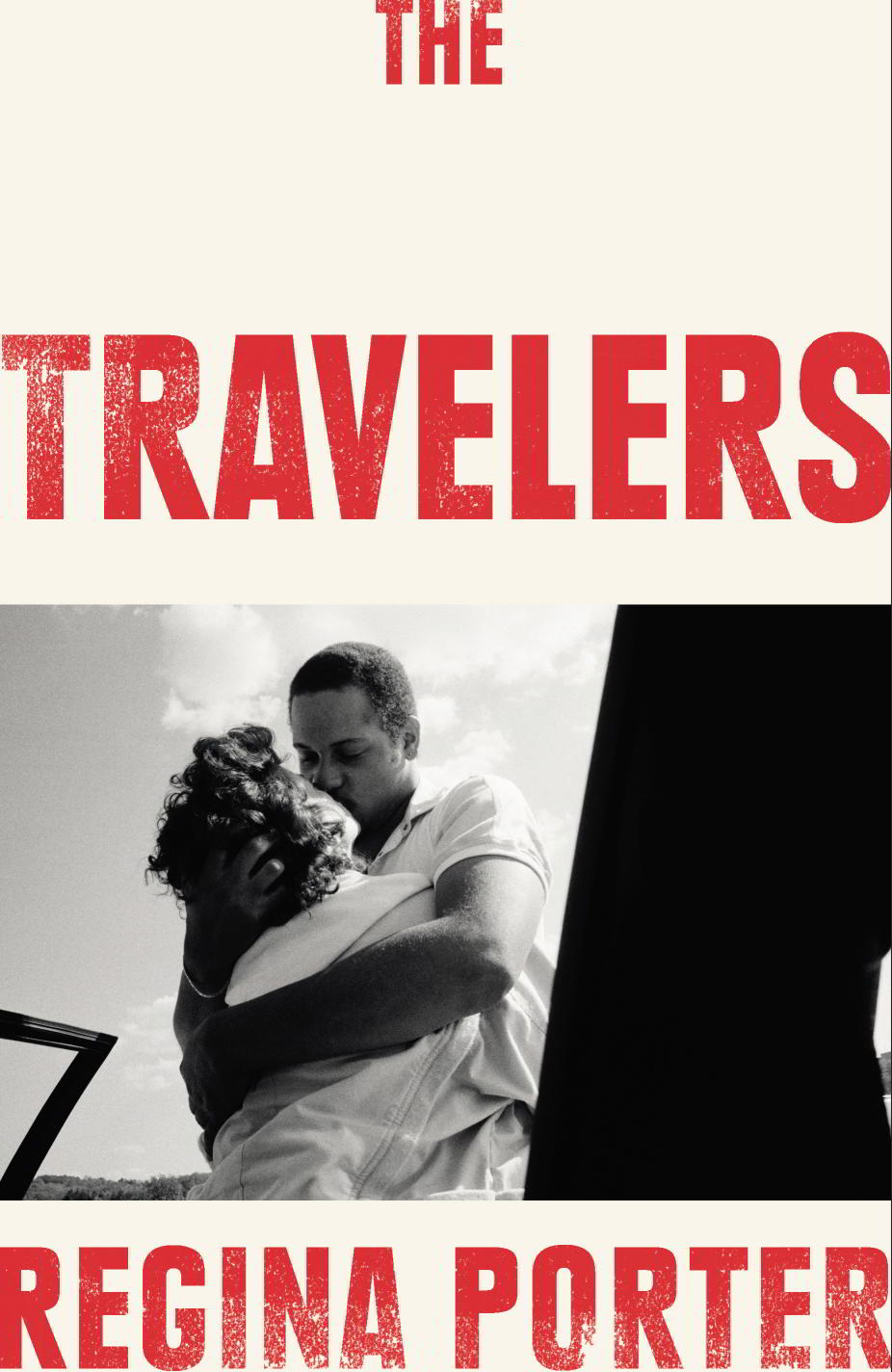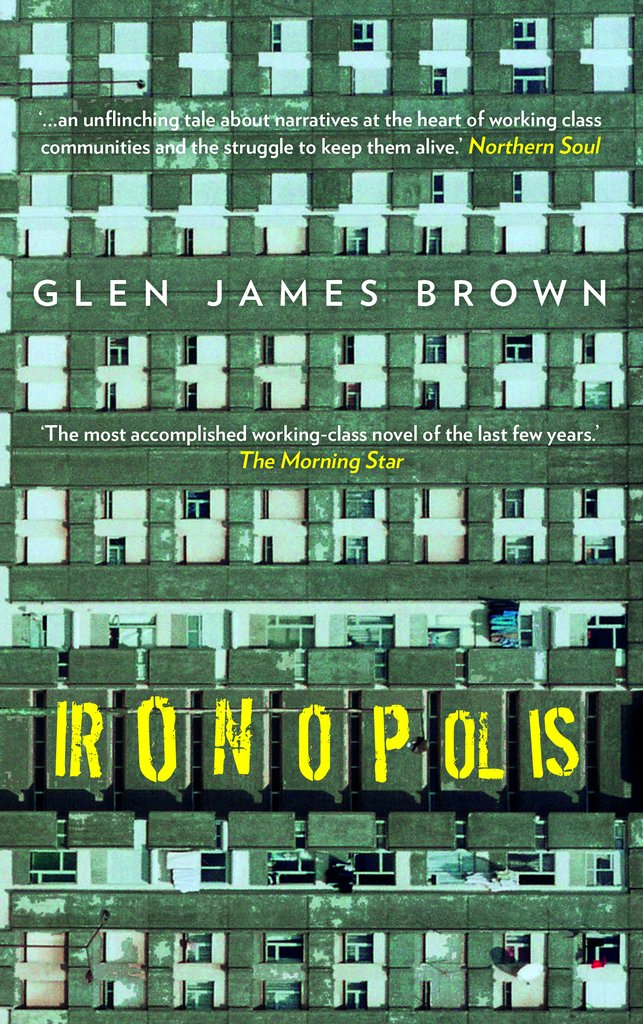Posted on April 7, 2020 by The Orwell Prize -

Ruby Cowling was born in Bradford and now lives in London. This Paradise is her first book. Her stories have won The White Review Prize (2014) and the London Short Story Prize (2014) among others and been widely published in journals and anthologies, including Lighthouse, The Letters Page, Unthology, and The Lonely Crowd.
Posted on April 7, 2020 by The Orwell Prize -

John Lanchester was born in Hamburg in 1962. He has worked as a football reporter, obituary writer, book editor, restaurant critic, and deputy editor of the London Review of Books, where he is a contributing editor. His books have won the Hawthornden Prize, the Whitbread First Novel Prize, E.M Forster Award, and the Premi Llibreter, been longlisted for the Booker Prize, and been translated into twenty-five languages. He is married, has two children and lives in London.
Posted on April 7, 2020 by The Orwell Prize -

Regina Porter is an award-winning playwright and a graduate of the Iowa Writers Workshop, where she was an Iowa Arts Fellow. She was born in Savannah, Georgia and lives in Brooklyn. The Travelers is her first novel.
Posted on April 7, 2020 by The Orwell Prize -

Ben Lerner was born in Topeka, Kansas, in 1979. He has received fellowships from the Fulbright, Guggenheim, and MacArthur Foundations, and is the author of three internationally acclaimed novels, Leaving the Atocha Station, 10:04 and The Topeka School. He has published the poetry collections The Lichtenberg Figures, Angle of Yaw (a finalist for the National Book Award), Mean Free Path and No Art as well as the essay The Hatred of Poetry. Lerner lives and teaches in Brooklyn.
Posted on April 29, 2019 by The Orwell Prize -

“A brilliantly evocative and laugh-out-loud funny debut novel presents life and the longing to make art on the fictional Burn Council Estate, in post-industrial Middlesborough. Glenn James Brown’s fierce, compassionate, multi-voiced story follows its characters across generations as the UK’s crisis in social housing hits the 1990s and becomes acute. Domestic details are documented with moving accuracy as he weaves his story together through oral history projects, found letters, celebrated paintings and local myths. Ironopolis celebrates a community and mourns its demise; it damns the politics of individualism and property greed to write a great slice of disappearing working class life into our national canon.”
Posted on April 29, 2019 by The Orwell Prize -

Milkman won the Man Booker Prize in 2018 the National Book Critics Circle Award in 2019. Anna Burns, born in Belfast, is the author of two other novels, No Bones and Little Constructions, and of the novella, Mostly Hero. No Bones won the Winifred Holtby Memorial Prize and was shortlisted for the Orange Prize for Fiction.
Milkman is a remarkable book — recording a specific time and a specific conflict with brilliant precision but universal in its account of how political allegiances crush and deform our instinctive human loyalties. Its tone of voice — wry and funny, furious and compassionate — is a marvel.”
Tom Sutcliffe
Posted on April 29, 2019 by The Orwell Prize -

“Sam Byers’ Perfidious Albion offers a sharply drawn cartoon of our current moment, a Hogarthian picture of a nation drunk on its own rancorous opinions. It’s a book about rage, about those who seek to exploit it, and the unnerving ease with which online social networks can dissolve our connections to those we live alongside.”
Posted on April 29, 2019 by The Orwell Prize -

“The sour pun in the title of David Chariandy’s short, elegiac
novel crystallises its place in the conjunction of sexual and racial and
family politics. It shuttles back and forth in time to describe the
narrator’s relationship with his older brother and their Trinidad-born
single mother, in a poor part of Toronto, the death of that brother and
the aftershocks of his death. It speaks of ‘complicated grief’. It’s a
book of great lyric precision and emotional resonance: an epic crammed
into the space of a novella.”
Posted on April 29, 2019 by The Orwell Prize -

“The luminous prose of Jacqueline Crooks’s stories thread together the migratory entanglements of Indian coolie labour and Black enslavement in the Carribbean at the turn-of-the-century through to London in the 2010s and back again. The Ice Migration’s striking parabolic structure disrupts linear trajectories of time and geography; haunting, visions, and duppies trouble the progression of modernity. The concatenated sketches in this family history explore survival, pain, and often tender, lyrical moments in the midst of the grand scale of colonial and postcolonial injustices.”
Posted on April 29, 2019 by The Orwell Prize -

“Nick Drnaso’s subdued yet searing graphic novel depicts the collision between fake news and real tragedy in our contemporary media climate. Drnaso’s understated art style underscores the collateral damage from the trauma of a missing loved one, while the complex layering of the comics panels conveys the uneven tempos of grief and the creeping nature of doubt and paranoia. Sabrina questions the divisions between authoritative and informal processes of knowledge production and manipulation from the level of internet forums to the apparatuses of national security.”
Posted on April 29, 2019 by The Orwell Prize -

“Diana Evans’ Ordinary People is part love story, part ghost story; an immersive, heartfelt and sometimes excruciating portrait of middle-class married life in a mixed up, wished-for cosmopolitan world. It is also a piercing exposé of race and gentrification in contemporary South London. While its sensitive main character Melissa is haunted by the Victorian city’s erasure of its class and Imperial history, the pull of her mother’s traditions and the political thought and work of Toni Morrison deeply infuse this book. With great control, Evans counterpoints global black and mixed race excellence with the parent-baby-mortgage-holiday struggles of everyday lives, and questions what it means to be ‘ordinary people,’ today. Through her shifting prose she makes beautiful confusion of any fixed idea of a centre or its margins, and reveals identity and love to be fluid, revolutionary things.”
Posted on April 29, 2019 by The Orwell Prize -

“Guy Gunaratne’s very timely book In Our Mad and Furious City makes us listen to voices that are usually heard only in caricature, faithful to their distinctiveness but alert to nuance that is often left out. A powerful, compelling fiction about how our better natures can be vulnerable to fear and incitement.”
Posted on April 29, 2019 by The Orwell Prize -

“In An American Marriage Tayari Jones teases out the slow violence to romantic and familial relationships as the collateral damage from the antiBlackness of the American justice system meted out by the prison industrial complex. Love and obligation wax and wane as masterfully captured in a standout epistolary sequence drawn out over years of patience, frustration, and thwarted ambition. With great perceptiveness the novel attends to the overlaps and divergences between the dreams and desires of Black women and men as they struggle with their understandings of agency and consent.”
Posted on April 29, 2019 by The Orwell Prize -

“Novuyo Rosa Tshuma’s House of Stone takes us through the transformation of Rhodesia into Zimbabwe in the deeply unreliable company of Zamani, whose drive to re-invent his own history mirrors the strategic amnesia and myth-making of those who lost power and those who currently hold it. A funny, vivid, deeply serious novel which belies its blithely amoral narrative voice.”
Posted on April 29, 2019 by The Orwell Prize -

“Red Clocks carves out a space of its own in the tradition of
feminist near-future dystopias. Here¹s a North America not gaudily
reinvented but just slightly tweaked from our own, and the more disturbing
for it. Roe vs Wade has been overturned; abortion criminalised; the
two-parent family now not so much normal as compulsory. In several voices,
with huge narrative pace and literary artfulness, Leni Zumas evokes the
effect on that of the everyday lives of the several different women whose
intersecting stories it describes.”
Posted on April 29, 2019 by The Orwell Prize -

“Sulaiman Addonia’s lyrical, intense second novel was ten years in the making. It opens with a riff on the Italian classic film Cinema Paradiso to show us what that film leaves out: the lives of East Africans first colonised by Italy, then caught in a 30 year war which created thousands of Eritrean refugees. In prose that blurs the lines between realism and cinematic fictions, Addonia gives us another take on Paradiso’s missing reel: through uncensored scenes of female desire he explores the politics of sisterhood to claim the novel’s place as work of multifaceted resistance. All this is done through the characters of Saba, a young Queen of Sheba, and her mute brother Hagos who are newly arrived in the camp. Though they live under constant surveillance from others, they switch gender roles, love where they will and dream of speaking on their own terms. Meanwhile they must navigate the violence of British intervention, UN aid programmes and their own culture, which rejects homosexuality and cuts women to deny them sexual pleasure. Through prose that insists there is no difference between the profane and the profound, Saba and Hagos emerge as loving and loyal, funny, resourceful and sexual. This is a unique novel with a pair of central characters rarely seen in fiction.”















